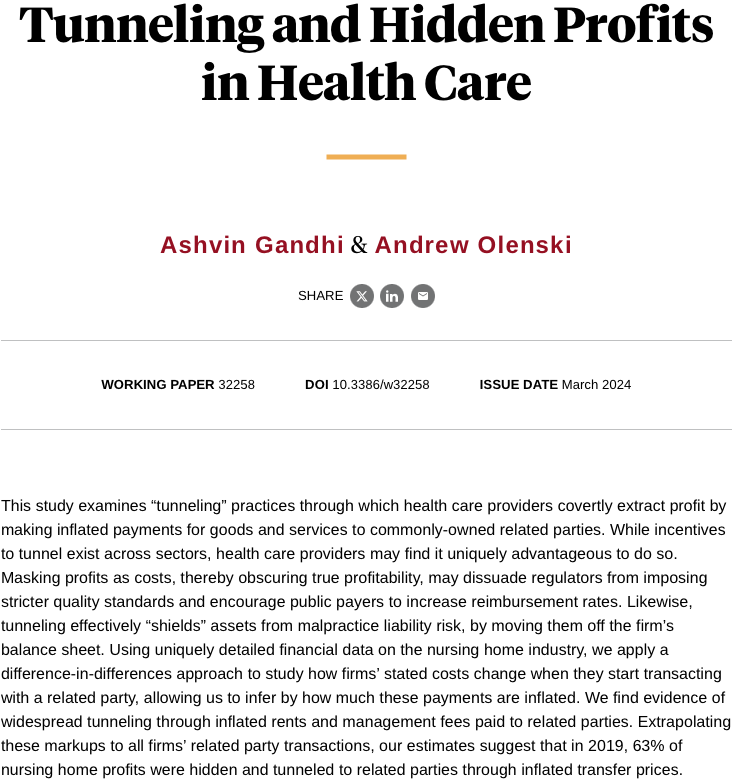
I'm an Industrial Organization and Health Economist at @UCLAAnderson and @nberpubs
How to get URL link on X (Twitter) App


https://twitter.com/nberpubs/status/1528012747379576834Drug price controls have substantial support on both sides of the aisle for a reason. The US is essentially the only developed country that doesn't regulate drug prices, and as a result we pay many times what other countries do.


 Providers participating in Medicare/Medicaid submit financial data to federal/state authorities. These submitted financials often suggest that providers are in desperate financial straits. For example, since 2000, the typical nursing home has claimed to be unprofitable!
Providers participating in Medicare/Medicaid submit financial data to federal/state authorities. These submitted financials often suggest that providers are in desperate financial straits. For example, since 2000, the typical nursing home has claimed to be unprofitable!

https://twitter.com/ashdgandhi/status/1366812537551872000These new administrative data detail the daily staffing decisions of a whole industry: who worked how many hours at each facility on each day, as well as what their role was (e.g., RN, LPN, CNA, director, PT, OT, etc.) and their employment relationship (contractor, wage, salary).